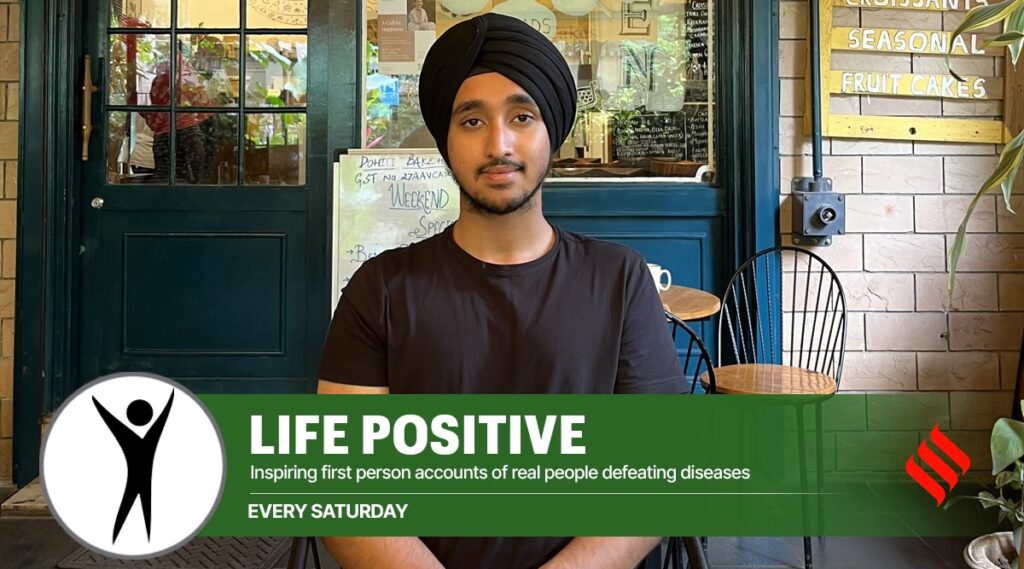When 18-year-old Shabtaab Singh Khaira snored at night, his parents thought he was sleeping soundly. Little did they know that at 93 kg, his obesity had resulted in sleep apnea that had gone unnoticed. Till the day he choked and woke up with a start, the first indication that his breathing had stopped 21 times in an hour and plunged his oxygen saturation to 70 per cent! But today with weight loss, a corrected lifestyle regimen, exercise and a minor correction of his epiglottis that was closing his airways while sleeping, this commerce student is back to classes at Symbiosis, Pune, and has returned to playing tennis.
And he intends keeping it that way. “I now sleep no less than seven hours, wake up rested and alert, and if there is too much work in college, I don’t feel tired. I take a power nap and even on days I get five hours of sleep, I don’t feel fatigued. I go to the gym regularly, eat a high protein diet, avoid eating out, have dropped more weight and feel fit,” he says.
WHY TEENS DEVELOP SLEEP APNEA
If you thought sleep apnea among young people is a rarity, then you need to look at the significant number of adolescents being treated by Dr Sandeep Bansal, Professor and in-charge Sleep Lab, Department of Otolaryngology and Head Neck Surgery, Postgraduate Institute of Medical Education and Research (PGIMER), Chandigarh. During adolescence, there is a natural shift in the sleep-wake cycle, resulting in a delayed sleep phase. So, teens tend to feel more alert and awake in the late evening and have difficulty falling asleep early. “Combine this tendency with busy school schedules, exam stress, the pressure of meeting expectations, part-time jobs and social activities and they slip into the habit of late nights and early mornings, resulting in insufficient sleep,” he says. Additional stressors, especially for hostellers like Shabtaab, who live far away from home, are caffeine, irregular sleep and meal patterns and tech overdose before bed. Devices emit blue light that suppresses the release of the sleep hormone called melatonin, affecting your circadian rhythm. As a result, Shabtaab would be sleep-deprived through the day and slump down easily. “I would sit in the car and a few metres down the road, would be fast asleep. I lost concentration,” he says.
That’s when his parents consulted Dr Bansal for a sleep study and found out how compromised his sleep was and the dangers it posed to him. Apart from the sharp drop in oxygen levels, which should never go down below 90 per cent, his airways got blocked. “I was told my muscles are strong unlike an older person and, therefore, had avoided sudden cardiac arrest,” recalls Shabtaab.
A WHOLE REGIME CHANGE AND A MINOR SURGERY
Having assessed his breathing, lung function, brain activity and REM (Rapid Eye Movement), Dr Bansal concluded he had obstructive sleep apnea (OSA), characterised by shallow breathing and a partial collapse of the upper airway. He immediately put him on a weight loss plan with a strict diet and exercise. When Shabtaab got his weight down to 70 kg, the doctor repeated the test. This time he was found to have moderate sleep apnea with choking bouts recorded 17 times per hour at night. This is when Dr Bansal decided to do a number of tests, including drug induced sleep endoscopy (DISE) to evaluate the different levels of obstructions in the airway and other issues that could be causing the sleep apnea. Shabtaab’s epiglottis was found to be floppy and choking his windpipe. That fluttering caused his snoring. So Dr Bansal conducted a minimally invasive surgery to trim the epiglottis.

Shabtaab was on a liquid diet for two weeks, after which he resumed his normal life. His best takeaway from this exercise has been learning to prioritise. “I now value and understand the importance of a good night’s sleep, regardless of assignments, exams and projects. I do not have many late nights and try to sleep and wake up at the same time daily, except on a Sunday. The key, as advised by the doctor, is a regulated sleep pattern,” he says.
 Designed by Abhishek Maity
Designed by Abhishek Maity

Shabtaab weighs himself regularly on a scale, never misses his workout schedule at the gym, plays lawn tennis and eats hostel food, making sure he has a protein in every meal. And for digital detox, he has cut down on screen time and is taking guitar lessons. “Music harmonises both my body and mind in such a way that I can now draw the line,” he says, strumming his anxieties away.
© IE Online Media Services Pvt Ltd
First uploaded on: 13-10-2023 at 18:20 IST

